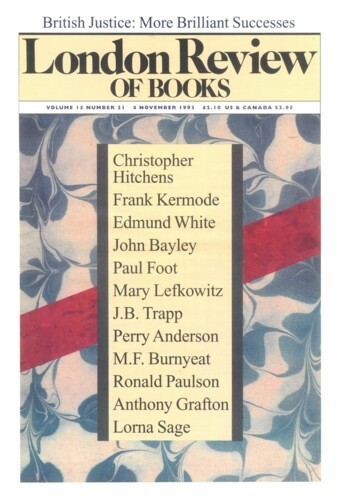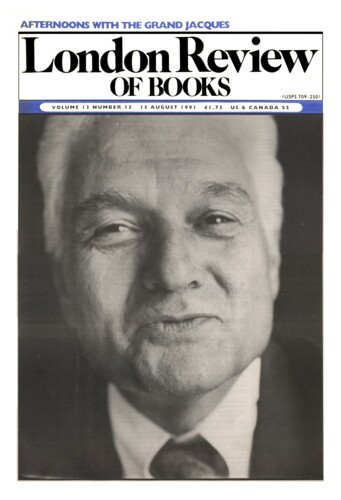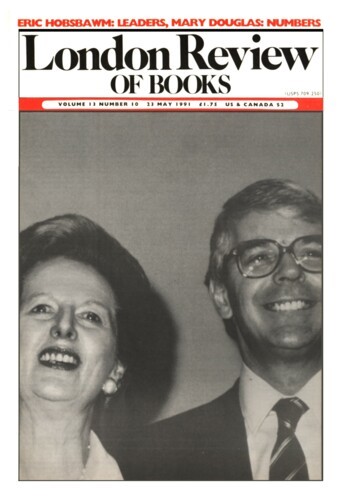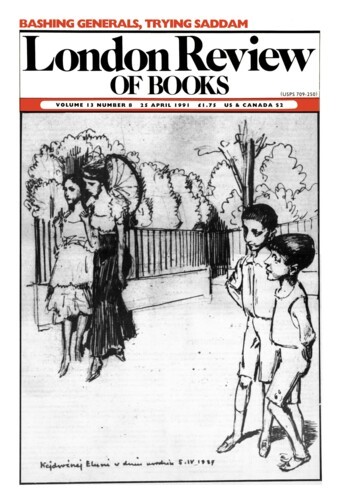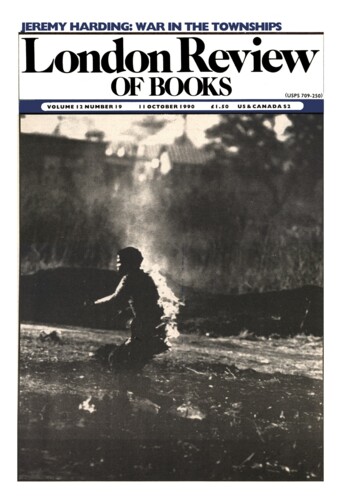Cry Treedom
Jonathan Bate, 4 November 1993
It must be cause for at least mild celebration that the United States now has a Vice-President who can use the word ‘Cartesian’ in place of one who could not spell the word ‘potato’. In a chapter called ‘Dysfunctional Civilisation’ in his book Earth in the Balance, Al Gore writes that ‘the Cartesian approach to the human story allows us to believe that we are separate from the earth, entitled to view it as nothing more than an inanimate collection of resources that we can exploit how we like; and this fundamental misperception has led us to our current crisis.’ For Gore, Descartes’s influence has been both cause and symptom of a separation between the mind and nature which has served as Western man’s licence for his ravaging of the environment. An array of Greens from ecofeminists to holistic New Agers share Gore’s hostility to what is seen as the arrogance of the Enlightenment, arguing that we are all now paying a price for it in the form of global warming, acid rain and so forth. Over a century ago, John Ruskin was arguing that Cartesian (‘modern’) thought had destroyed man’s reverence and wonder in the face of the external world, and that the death of God-in-nature would eventually bring the end of nature. Gore’s book is squarely in this tradition: it is an appeal for spiritual regeneration as much as a manifesto for environmentally-sensitive policies.
